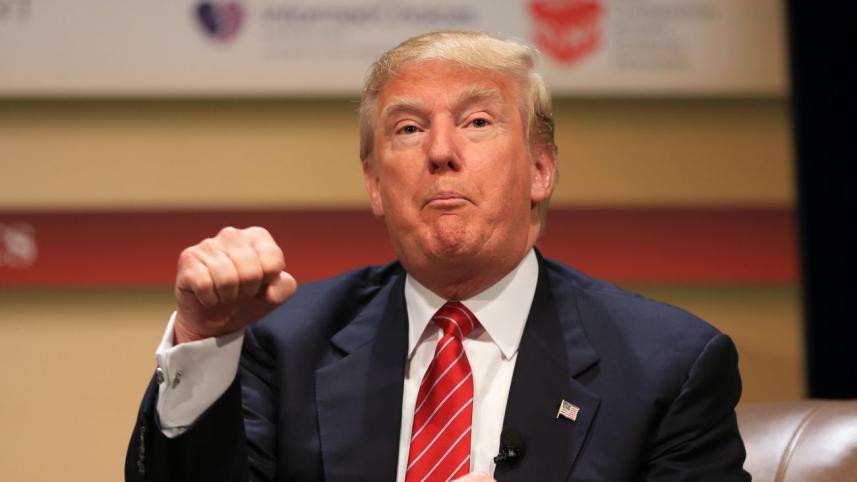Trump's campaign slogan, “It's the Economy, Stupid” is a risky one

Economic times in the US are not bad in comparison with the uncertainty and volatility that has gripped the rest of the world following Brexit, but ask anybody and you will always get the familiar response, "Things could have been better". Since the US is headed for a presidential election in less than four months, this feeling of general unease does not bode well for the incumbent or the Democrats. In recent memory, two sitting presidents lost their jobs because of voter concerns about the economy. Jimmy Carter in 1980 and George Bush in 1992. In 1992, during the US presidential elections, Bill Clinton was running a dogged campaign against an incumbent George H.W. Bush, also known as "Bush 41". The odds of unseating President Bush were slim, given that it only happened three times in the last 60 years, and only when the economy was in a bad shape. In 1992, the US economy was in a modest slump following the First Gulf War, and George Bush was vulnerable. So Clinton's campaign advisers, particularly a seasoned strategist named James Carville, seized the opportunity and came up with the most memorable campaign slogan in recent times, "It's the economy, stupid", and Bill Clinton was elected president.
How does all this relate to what's happening now? The current incumbent President Obama is a Democrat and has successfully pulled the US economy out of a mess. The official unemployment rate is low, but according to recent jobs reports, the average for the last three months dropped to 150,000--pulled down by the May numbers. Economists are also considering another indicator: the percentage of 25- to 54-year olds who have jobs. In 2006, before the recent recession, it was 80 percent and then it took a dip during the 2008-2009 recession hitting the low point of 75 percent and now is higher, but still at 78 percent.
Now, Donald Trump, the presumptive Republican candidate for President, is a shrewd campaigner, and his campaign strategists are now spending day and night poring over the forecast and data from the Federal Reserve, Congressional Budget Office, and the Council of Economic Advisers. They are also reading the tea leaves, and churning the crystal ball to guess what shape the US economy will be in during the election campaign in the next five months. And, I will not be surprised if he turns the tables on the Clintons and proclaims, "It's the economy, stupid!"
For the off-shore observer, the news that the unemployment rate is below five percent ought to be good. But the recent uptick sent chills through the presumptive Democratic candidate Hillary Clinton's economic advisers. And then there are some other hidden weaknesses too, low inflation rate and sluggish growth in the wage rate. A robust and sustained growth in these areas would have triggered a critically anticipated increase in the fed funds rate and send a signal to the economy that "All's well". But all that did not happen, and the Wall Street and the global financial markets were rocked by another round of price variations in the wake of Brexit.
The latest inflation rate for the United States is 1.1 percent through the 12 months that ended in April 2016, as published by the US government on May 17, 2016, and it is well below the Fed's target rate of 2 percent. The next meeting of the Federal Reserve System's Open Market Committee (OMO), the group that sets interest rate policy, is scheduled at the end of July. It is very unlikely that the Fed will raise the rate at the July or September meeting since growth in GDP is not robust and the economy is facing "headwinds" from developments overseas.
Even The New York Times, which generally touts Democratic agenda, has been blaring that the "US economy is weak". The irony is that often the public perception is at odds with the real condition, in other words there is a gap between what is happening and what the voters think is happening. Unfortunately, what matters is the voters' perceptions. If there is no wage growth, with the existence of tough labour market for the average guy, and jobs and business that are disappearing, then the bright sunshine that will usher in a new summer may not matter. While the unemployment rate is low, according to a very well-respected research report, during presidential elections, the unemployment rate is not correlated with the outcome of the elections.
Rumour has it that Donald Trump and the Republicans will play the economy card against Hillary Clinton, given her association with the current administration and the recent sobering news on employment growth. Of course, it is too early for him to bring the economy as the central theme of his campaign, since there are still a few unpredictable economic variables which might be game-changers: Overseas markets, impact of Brexit, and prospects of China's recovery. The US is currently negotiating seriously with China to align its exchange rate and trade policies for their mutual benefit. It will also discreetly ask China to pay heed to the recentjudgment on the South China Sea islands by the Permanent Court of Arbitration in The Hague. At last month's eighth annual US-China Strategic and Economic Dialogue (S&ED), Secretary of State John Kerry said, "We have a chance ... to define a new relationship. We have an inescapable responsibility -- a shared duty -- to lead in the direction of stability, prosperity, and peace." Since Barack Obama can take full credit for starting this dialogue when Hillary Clinton was the Secretary of State, China's economic recovery will give the Democrats a much-needed boost.
Dr. Abdullah Shibli is an economist. His recent book, "Economics is Fun" is a collection of essays on economic policy.




 For all latest news, follow The Daily Star's Google News channel.
For all latest news, follow The Daily Star's Google News channel.
Comments